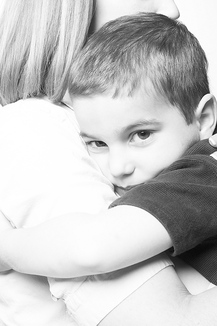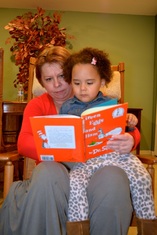From Our Educators
Debra Hasbrook, M.Ed. |

9/11/2014
Even in a small child’s life there is loss. I have often heard, “Oh their young, they will get over it.” “Or they won’t remember, just don’t talk about.” Though this is partially true, time will soften loss and memories will fade. But that does not minimize the loss that is happening at the time. When does this loss occur?
All of these events give a child a feeling of loss, confusion and sadness. These emotions come even if the child was in a negative environment. Often the child will internalize their feelings, thinking it was somehow their fault. Children who do not yet have the verbal skills yet to talk about the loss will still need help through this time. Just because they are little doesn't mean that they are not feeling the loss, or that their feelings aren't valid. What can you do? Acknowledge the loss and understand that the child will go through a grieving period. This may become apparent in behavior changes, reverting to younger behavior, sleep disturbances, attachment issues, concern that the remaining people in their life will disappear also. Be patient and understanding. Everyone’s grieving period is different. “He should be over it by now,” is not helpful and not up to you. Don’t pretend that it didn't happen and answer questions respectfully and honestly. Use language that is developmentally appropriate. Always stay with the positive, and do not talk badly about the missing person, this will only confuse the child. With your help and support a little one can move through the grieving process with less trauma and long lasting effects. Coping with Loss http://www.psychologytoday.com/blog/overcoming-child-abuse/201107/how-help-children-deal-loss Coping with Change, Loss and Grief http://www.cyh.com/HealthTopics/HealthTopicDetailsKids.aspx?p=335&np=287&id=1649 |









